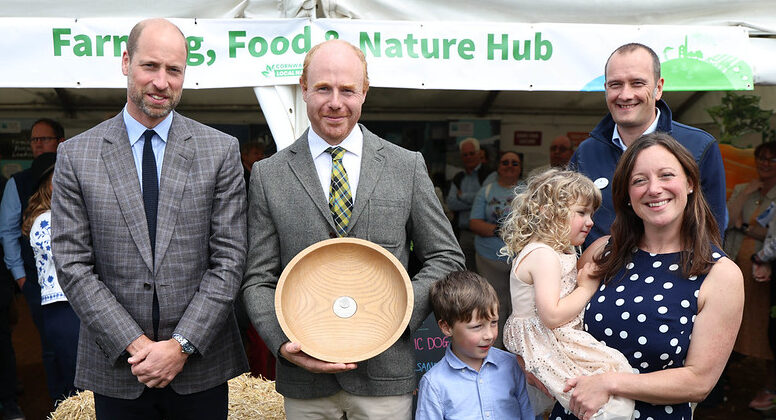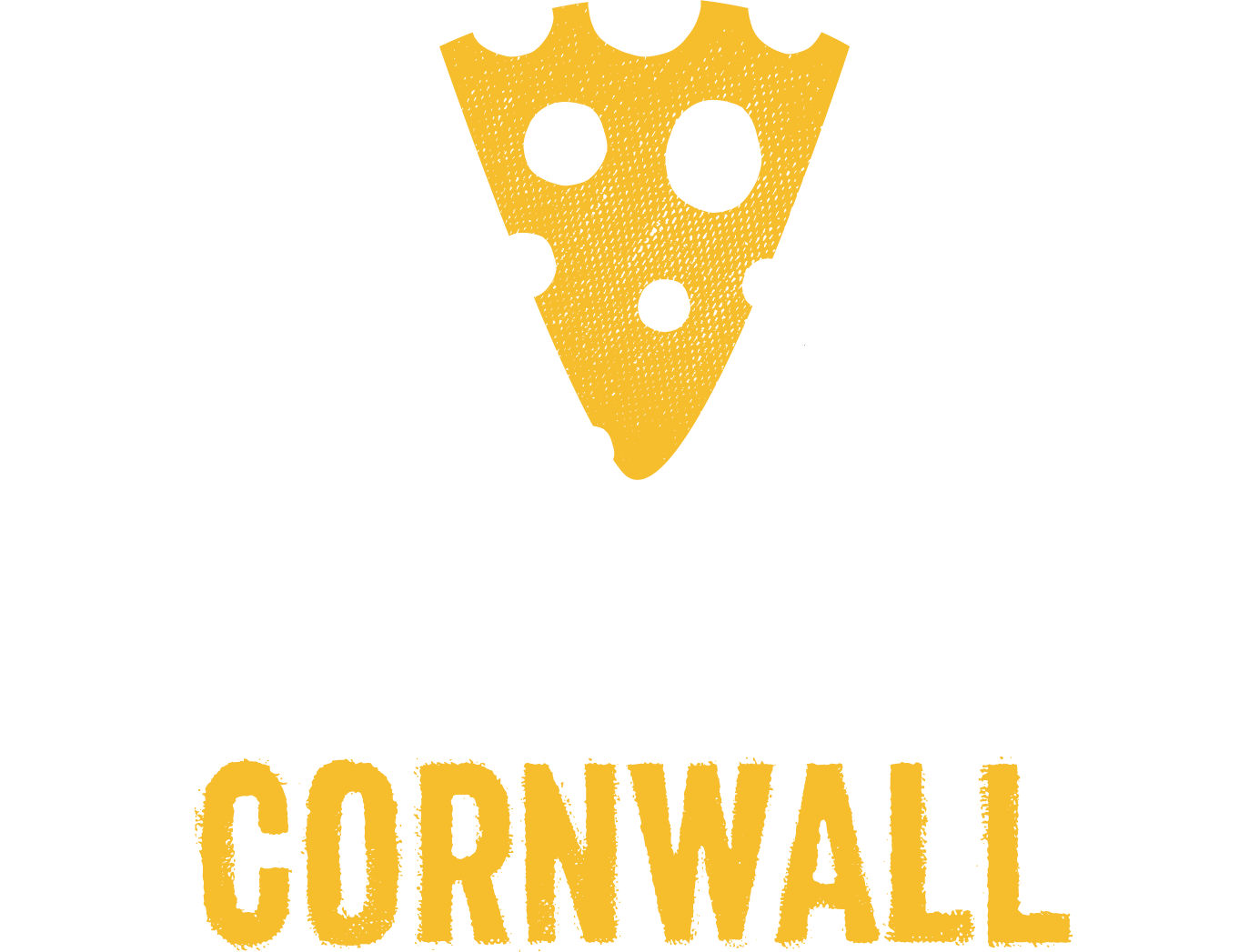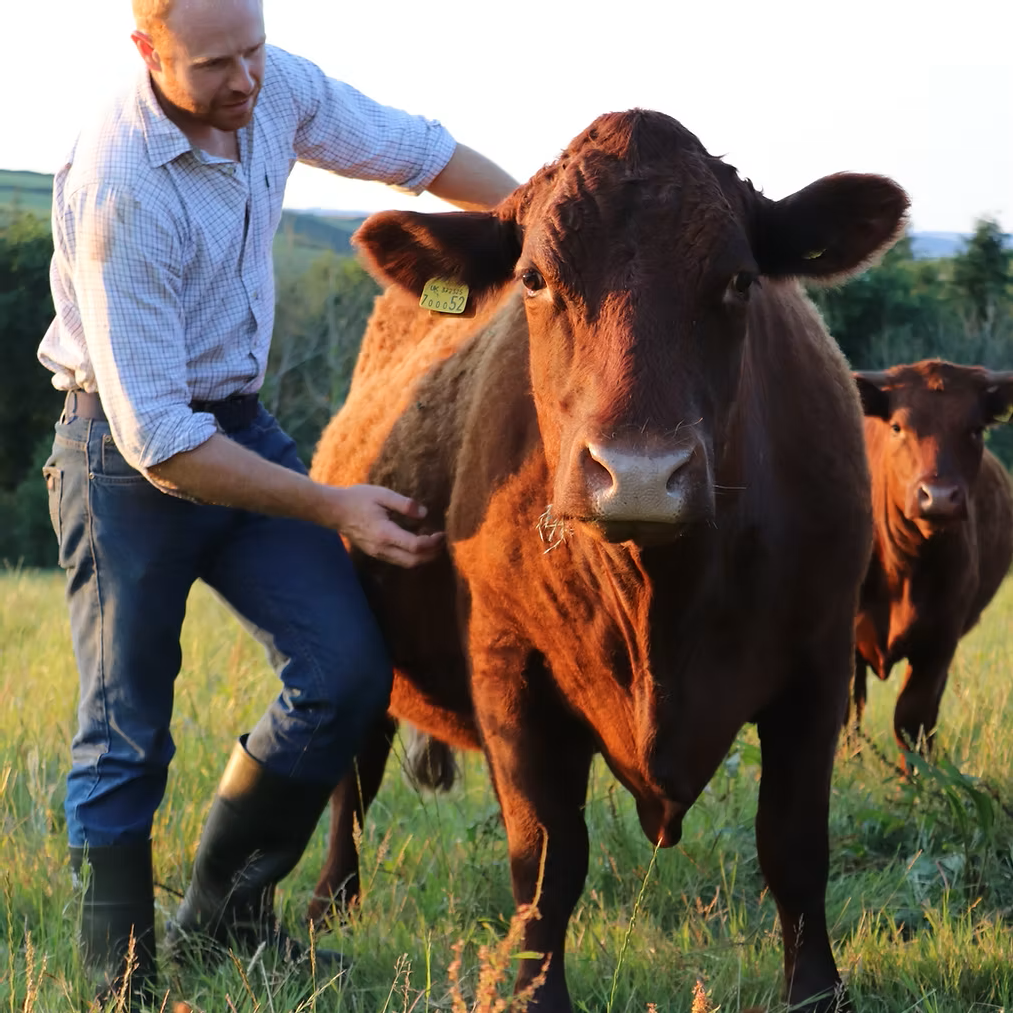
This year’s Royal Cornwall Show was extra special for one Cornish farming family who won the prestigious Duke of Cornwall’s Award for sustainable and wildlife-friendly farming. James Richards, who runs Tregaminion Farm, near Porthallow, and Bruggan Farm, Cadgwith, alongside his father Roger, was presented with the award by the Duke of Cornwall himself. We caught up with James’ wife, Sarah, to find out more about their journey towards more sustainable farming methods.
Q) Can you tell us a little about your farming business?
A) Our home farm is Tregaminion, where we grow our Christmas trees and keep our suckler herd of pedigree Ruby Red Devons. Bruggan is our larger site, and we have our commercial herd of beef cows there. We sell our beef cattle and lamb through Truro Livestock Market and to butchers. We also sell directly to the public through meat boxes. We only deliver to the Lizard Peninsula because we want to provide local food for local people at a reasonable cost.
Q) Have you always farmed sustainably?
A) James and Roger have always had a love of wildlife and the environment, and James has really brought that into his farming methods. Over the last 10 years, we’ve been actively moving towards a more sustainable way of farming, starting with the health of our soil. We use an agronomist to sample every field on a two- to three-year rotation. Using this science-informed approach, we’ve been able to cut our fertiliser use by two-thirds and have used minimum tillage methods to plant 22 hectares of herbal leys and legumes to fix nitrogen and improve soil structure.
The herbal leys have increased biodiversity on the farm, and reducing fertiliser has lowered our costs. Our yields are the same, and our cows are thriving, but for us, it’s not just about the productivity of the animals; it’s the productivity of the farm in terms of biodiversity.
Q) What was involved in entering the award, and what has winning it meant to you?
A) We were nominated for the award by Edward Richardson from Farm Cornwall. We had to submit some information about how we farm and what we’ve done to be more sustainable. Then, we had five judges come out to visit us at Bruggan Farm.
The best outcome from winning the award is the confidence it has given James, in himself and the choices he has made for the farm. He has worked with a number of different organisations and as part of various networks related to sustainable farming, and it’s been great for him to know that it’s all paid off.
Q) What would your advice be for anyone thinking about using more regenerative farming methods?
A) I would start by suggesting they get to know the health status of their soil. Regenerative farming starts with making soil a priority. Once you know what your soil needs, you can research the various agri-environment schemes that are available. We were lucky to work with some very helpful individuals from Farm Cornwall, Cornwall National Landscapes and the Farming & Wildlife Advisory Group (FWAG) South West, who gave us great support and advice.
Q) How is Cornwall, as a whole, doing on the journey towards regenerative farming?
A) I think James would say that in the future, farming will go one of two ways. You’ll get farmers who don’t use the Sustainable Farming Incentive (SFI) and will get bigger and bigger in order to make money through economies of scale and intensive farming. But you’ll also get smaller-scale farmers working to improve biodiversity and farm sustainably. In Cornwall, due to the nature of the land, it’s hard for farms to get bigger. We already have a lot of small farms and smallholdings here, and the only way they can survive is by going down the SFI route. I think Cornwall will lead the way in that sense—out of necessity.
Q) What would help farms and food businesses in Cornwall become more sustainable and wildlife-friendly?
A) There needs to be a fair price paid for good-quality food. We’re trying to farm using methods that work with nature, and it’s hard to do that and still turn a profit if the price of the product isn’t high enough. It’s important for all farmers to speak out about this, because when you’re up against consumers who aren’t willing to pay a fair price—or large supermarkets—it’s not a sustainable system. Producing good-quality, local food is a moral obligation as far as we’re concerned, but a lot of farmers are just scraping by because what they’re doing isn’t valued enough.

